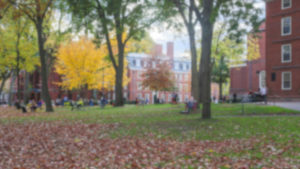Blacks Do Atheism: Coming to an HBCU Near You

I remember the isolation I endured when I began to scrutinize my religious faith and when curiosity inevitably led me to apostasy. I was mainly closeted, as virtually everyone I knew was religious, and “atheism” at that point in time was too strong a term for me to embrace.
It took frequenting online spaces dedicated to those who doubt or reject the god hypothesis to derive some semblance of community. And since most skeptic and atheist spaces are dominated by white folks (consequently, these spaces center issues and concerns that sometimes don’t relate to Black lived experiences with religion and society), I benefitted most from groups created by and for Blacks and non-Black people of color. These groups let me know I wasn’t alone, that I wasn’t the only one who had questions, that others also recognized serious flaws in the religious beliefs they were raised to uncritically accept as true.
The Secular Student Alliance (SSA) recognizes there’s a need currently not being met when it comes to their outreach and support of nonreligious students on campuses nationwide. Wanting to build a more inclusive secular student movement, SSA has begun to hone in on building secular communities within historically black colleges and universities (HBCUs).
I spoke with the executive director of the Secular Student Alliance, August E. Brunsman IV, about this initiative.
“With over 100 historical black colleges and universities around the country, and a Secular Student Alliance only having a group at Fayetteville State, it was time to do some active outreach to these schools and let their students, faculty, and staff know that we want them,” he told me. “From the activism of people like A. Philip Randolph, Dr. Sikivu Hutchinson, and Mandisa Thomas, we know that there are plenty of people at HBCUs who are excited about a secular worldview.”
Campuses currently being targeted for outreach include Central State University in Ohio, Alabama A&M, Bowie State University in Maryland, Howard University in Washington, DC, Florida A&M, North Carolina A&T State, North Carolina Central, Morgan State University in Maryland, Alabama State, Morehouse College in Atlanta, Georgia, South Carolina State, Alcorn State University in Mississippi, Savannah State University in Georgia, Tennessee State University, and Virginia State University. This process is thorough and involves reaching out to school faculty, staff, students, LGBTQ club advisors, progressive student activists, multicultural offices, and interfaith programs, and also involves social media ad campaigns.
Relevant historical and cultural elements factor into why religiosity remains so entrenched within Black communities. I’ve previously discussed why this is when it comes to the Black Church, but in general, when there’s an increase in social, economic, and political deprivations, there tends to be an increase in a reliance on god beliefs. This coincides with research that points to religion’s utility as a coping mechanism.
While disenfranchisement remains an issue for Black America, I’m hopeful SSA’s efforts to reach out to HBCUs in search of curious, closeted, and isolated nonreligious youths will help in providing much-needed resources and support to promote a more informed, secular society.
